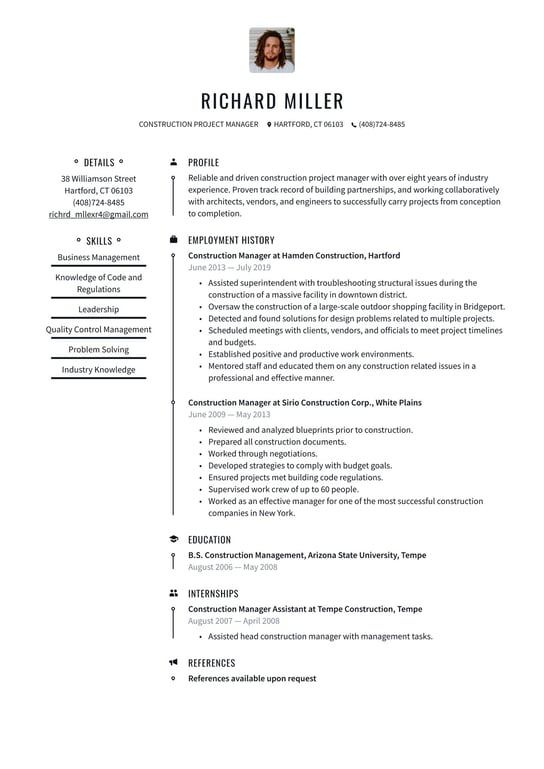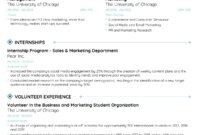Landing your dream role as a construction project manager often hinges on one crucial document: your CV. It’s more than just a list of past jobs; it’s your personal marketing brochure, designed to showcase your expertise, leadership, and problem-solving skills in the highly demanding construction industry. A well-crafted CV acts as your first impression, a vital opportunity to stand out from a competitive pool of candidates and secure that all-important interview.
Think of your CV as a blueprint for your career. Just as a project manager meticulously plans every phase of a build, you need to strategically plan every section of your CV to highlight your most relevant achievements and capabilities. Finding the right construction project manager cv template can significantly streamline this process, providing a structured framework that ensures you include all the necessary information while presenting it in a clear, professional, and impactful manner.
Essential Sections for Your Construction Project Manager CV
When putting together your CV, certain sections are non-negotiable for a construction project manager. Recruiters and hiring managers in this field are looking for very specific information, and having a well-organized document will make their job—and yours—much easier. Start with your contact information, ensuring it’s accurate and professional. This includes your name, phone number, email address, and perhaps a link to your LinkedIn profile if it’s up-to-date and relevant. Following this, a strong professional summary or objective statement is paramount. This should be a concise, powerful paragraph that immediately conveys your value proposition, highlighting your years of experience, key specializations, and career aspirations within construction management.
The experience section is where your CV truly shines. This isn’t just a chronological list of jobs; it’s a narrative of your professional journey, showcasing your accomplishments in each role. For every position, list the company name, your job title, and dates of employment. Then, use bullet points to detail your responsibilities and, more importantly, your achievements. Focus on quantifiable results wherever possible. Did you complete projects under budget? Ahead of schedule? Did you implement new safety protocols that reduced incidents by a certain percentage? These metrics are incredibly persuasive.
Tailoring Your Experience to Impress
When detailing your experience, think about the specific requirements of the job you’re applying for. A generic list of duties won’t cut it. Instead, tailor each bullet point to reflect skills and experiences that directly align with the job description. If the role emphasizes large-scale commercial builds, highlight your experience in that area. If it’s about infrastructure, emphasize relevant projects. This shows the hiring manager that you’ve done your homework and are genuinely interested in *their* specific opportunity.

Consider including a separate section for “Key Projects” if you have a diverse portfolio. This allows you to elaborate on a few significant projects, providing details such as:
* Project type and scale
* Your specific role and responsibilities
* Challenges faced and how you overcame them
* Key achievements, such as cost savings, on-time delivery, or innovative solutions
* The final outcome and success metrics
Finally, don’t forget your education, certifications, and skills. List your degrees, institutions, and dates of graduation. Any relevant certifications like PMP, OSHA, LEED, or specific software proficiencies (e.g., Primavera P6, AutoCAD, MS Project) should be clearly listed in a dedicated skills section. This allows hiring managers to quickly identify if you possess the technical competencies required for the role.
Optimizing Your CV for Today’s Job Market
In today’s competitive job market, simply having a good CV isn’t always enough. You need to optimize it not just for human eyes, but also for Applicant Tracking Systems (ATS). Many companies use ATS to filter resumes before a human even sees them. These systems scan for keywords and phrases relevant to the job description. Therefore, carefully review the job posting and incorporate those keywords naturally throughout your CV, especially in your professional summary, experience, and skills sections. Avoid “keyword stuffing,” which can make your CV sound unnatural and will be flagged by human reviewers.
Another crucial tip is to always quantify your achievements. As a construction project manager, you deal with tangible outcomes, so your CV should reflect that. Instead of saying “managed budgets,” say “managed project budgets up to $50 million, consistently delivering projects within 5% of allocated funds.” Instead of “improved efficiency,” state “streamlined procurement processes, reducing material acquisition time by 15%.” Numbers speak volumes and demonstrate your direct impact on project success and profitability.
Pay close attention to the language you use. Employ strong action verbs at the beginning of your bullet points to describe your responsibilities and achievements. Words like “Led,” “Oversaw,” “Implemented,” “Developed,” “Managed,” “Coordinated,” and “Delivered” convey a sense of proactivity and leadership. This makes your accomplishments more impactful and shows that you take initiative.
Finally, proofread your CV meticulously. A single typo or grammatical error can undermine your professionalism and attention to detail—qualities that are absolutely critical for a construction project manager. Ask a trusted friend or colleague to review it for any errors you might have missed. A fresh pair of eyes can catch mistakes that you’ve overlooked. Remember, your CV is often the first and only chance you get to make an impression, so make it count.
Taking the time to refine your CV, ensuring it clearly articulates your skills, experience, and achievements, is an investment in your career. It’s about more than just listing your past; it’s about strategically showcasing your potential and fit for future opportunities. A polished, targeted document significantly increases your chances of moving forward in the hiring process and securing that next exciting role in construction management.
